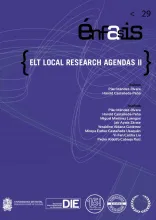
This chapter explores the unseen, silencing and effective practices of invisibilization in the classroom observations made by the Ministry of Education- external institutions - of English teachers in public schools in Colombia. This study argues that such practices of classroom observation are not simply normalized practices (formats, rubrics and data), but represent more than a process of instrumentalization, functioning as a social practice, where the teacher, observer and school directors, among others, are involved in an asymmetrical power-relation where an expert reasoning system in school contexts prevails, merged with reflection and criticism.
As such, I will recall my experience as an Observer, recruited and trained by a well-recognized institution for one of the activities of the National Bilingual Program. This study deals with the systems of reasoning, power-knowledge observation and control which are applied to EFL Teachers in order to make their classes effective. As a trained Observer, I set out to explore the decolonial option 5 in order to problematize classroom observation practices and their utility for normalizing English teaching, teachers and even Observers in an English as a Foreign Language Program.